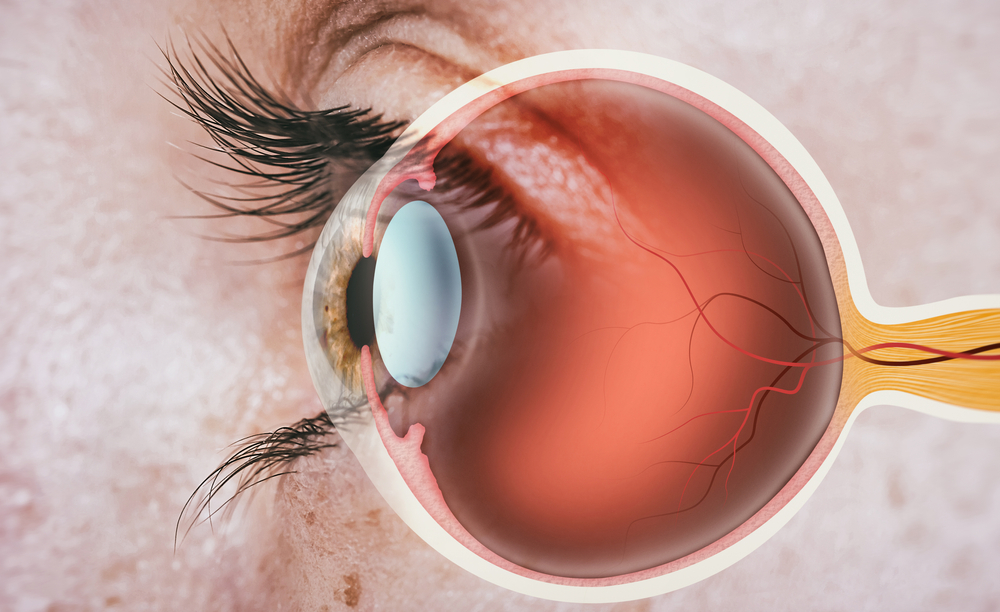
Yes, you can still get contact lenses if you have an irregular cornea.
An irregular cornea usually limits or complicates vision and can be hard to treat with regular contact lenses and eyeglasses. If eyeglasses and standard contact lenses fail to improve your eyesight because of an irregular cornea, scleral contact lenses may work.
First, your eye doctor will examine your cornea in detail. If they find that you qualify for treatment with scleral lenses, they will tailor-make a pair for you. They will ensure that the lenses sit softly and securely on your eye.
What Brings About Irregular Corneas?
The cornea is the transparent outer part of the eyes. Light must go through the cornea to enter the retina for clear eyesight. The retina sends nerve signals to the brain through the optic nerve for processing. Then, the brain tells you what you are seeing.
Since the cornea bends light to direct it to the retina, any irregularities in the cornea can stop light from reaching the retina. If light cannot penetrate your retina, you will experience vision complications. That is why your eye doctor may recommend scleral contact lenses.
Various eye problems may alter the shape of the cornea's curve. Some of the most common causes include:
· Birth defects.
· Severe dry eye syndrome.
· Eye burns or injuries.
· Bruising after an eye infection.
· Excessive eye rubbing.
· Corneal ulcers.
· Keratoconus.
· Previous eye surgery, such as cataract surgery or LASIK.
· Pellucid marginal degeneration (PMD).
· Conjunctival degeneration (pterygium).
How Is Vision Corrected When You Have Scleral Contact Lenses?
Scleral lenses are unique contact lenses that are big enough to cover your whole cornea and rest on the sclera. They are rigid-gas permeable, hold your cornea's shape, and allow oxygen to flow into the eye. Their extensive size and firmness let them act in place of the cornea and correct light refraction issues.
Scleral lenses have a tear reservoir that lubricates the space between the lenses and the cornea. That way, the cornea is moist and relaxed, reducing your chances of experiencing dry eyes.
Types of Scleral Contact Lenses
Scleral lenses vary according to their size. The three common sizes include:
· Semi-scleral or corneal lenses. These lenses have a wide diameter that measures 12.9 mm to14.9 mm and rest near where your cornea and sclera join.
· Mini-scleral lenses. Mini-scleral lenses' diameter measures 15 mm to 18 mm, and they cover your whole cornea and sit on the anterior of the sclera.
· Full scleral lenses. These lenses measure from 18.1 mm to 24 mm and above. They rest wholly on the sclera, arching over the entire cornea.
Are You a Good Candidate for Scleral Contact Lenses?
Anyone who wants to boost their eyesight with contact lenses can be eligible for scleral lenses. But these specialty lenses are more suitable for patients with hard-to-fit eyes, irregular cornea, and dry eyes.
Also, patients who have undergone eye surgery and left with vision problems may benefit from scleral contact lenses. Eye surgery, such as a corneal transplant, often leaves you with blurry or inaccurate vision. Post-surgery scleral contact lenses offer clear, sharp, and relaxed vision while safeguarding the gentle eye tissues from damage.
For more on contact lenses for irregular cornea, visit Brandon Eyes at our office in Middleton or Madison, Wisconsin. Call (608) 833-7256 or (608) 833-0301 to book an appointment today.









